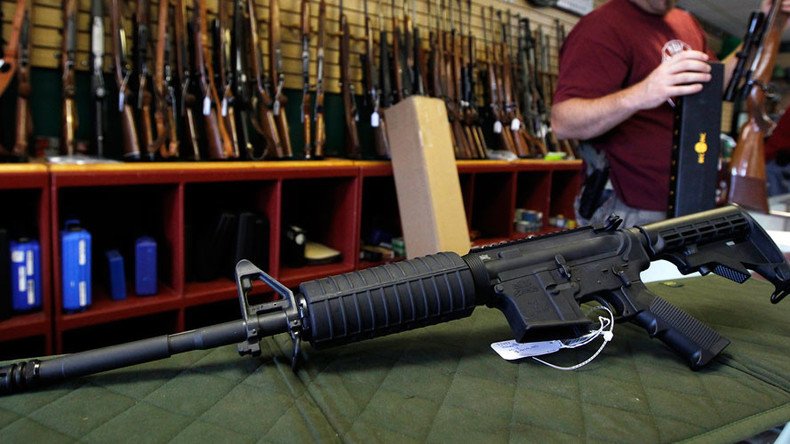US Supreme Court turns down challenge to assault weapons ban in 2 states

The US Supreme Court declined to hear a challenge to laws in two states that restrict ownership of semi-automatic firearms.
On Monday, justices rejected an appeal of an October decision by the Second US Circuit Court of Appeals, which upheld laws in Connecticut and New York that prohibit civilians from owning certain semi-automatic rifles and high-capacity magazines.
The laws bar access to the same gun used by Omar Mateen, the man who killed 49 people and wounded 53 others in a terrorist attack on an Orlando nightclub last week.
A federal ban enacted in 1994 had similar prohibitions on certain semi-automatic firearms and magazines that were defined as high-capacity, but that law expired in 2004.
The bans in Connecticut and New York were enacted in response to the Sandy Hook massacre, where a shooter with a semi-automatic rifle killed 20 children and six teachers at an elementary school in 2012.
Five other states and Washington, DC also have bans on semi-automatic rifles.
The two states’ gun laws were originally challenged in two cases from gun rights organizations and individual gun owners. The appeals courts consolidated the cases into one and upheld the law.
The Supreme Court ruled in 2008 that individuals have a right to possess guns in their home for self-defense, but has since refused to strike down state and local laws that enact restrictions on activities. Those restrictions include requiring guns to be locked or disabled when not in use, banning ownership for those under age 21, and bans on carrying firearms in public.
The US Senate is currently expected to vote on a set of competing gun control measures in response to the Orlando mass shooting, two proposed by Democrats and two proposed by Republicans.
The four bills address changes to the federal background checks systems and restrictions on gun sales to those on terror watch lists. All of them are expected to fail, however.












